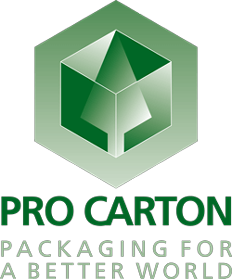Getting generations to connect
5 December 2016
Today, five different generations meet at the workplace and on the market: the traditionalists, the Baby Boomers, Generation X, Millennials and the so-called Generation Y or Gen Edge. What motivates and drives one age group may be completely meaningless for another. "Generational differences affect us all. It’s about connecting with each generation. It’s about making every generation’s voice matter" , says Phil Gwoke from BridgeWorks, one of the leading international specialists in this field.
Pro Carton: How can a networking of the generations in an organization implement the targeting of a certain mix?
Phil Gwoke: Not only is a healthy generational mix important for maintaining best practices and fostering new ideas, it is essential to the future lifeline of the organization. This will only happen by intentional design. In order to attract and retain the next generation of employees, businesses must understand what has changed in the way young professionals want to be engaged and motivated. Further, they will need to develop strategies that help the organization adapt to these shifts without making existing staff members feel marginalized or like the company is losing its identity.
Pro Carton: Is it true that the generations should be connected in order to respect and integrate different expertise for the benefit of the enterprise?
Phil Gwoke: That is exactly how it should work. But it is not as easy as it seems. Every successful enterprise today understands the importance of bringing diverse talent together to reach a goal. At the foundation of any strong team is effective communication. But while industry understands the need to work with people of all ages, the amount of misunderstandings that arise across generations is often underestimated as are the means in which they prefer to stay connected. On the other hand, working with different age-groups can be a lot of fun, especially when the other generations are valued and appreciated for who they are and are allowed to be themselves.
Pro Carton: How can one generation open up to another, e.g. a traditionalist to a Millennial – go to the disco?!
Phil Gwoke (laughs): Well not exactly to the disco, but one should not take one’s own values for granted and should try to meet on neutral ground, metaphorically speaking. The key to developing openness between generations is to raise awareness of the values that each different group brings to the organization. The history of any successful business should be celebrated and the future should be innovated. Whether looking forward or backward, barriers begin to evolve when one group believes that their perspective, method or ethic is the only way to succeed. Companies that effectively leverage the strengths of a diverse workforce utilize people or systems to facilitate forward and reverse mentorships so that everyone benefits.
Pro Carton: Is this the same for all sectors or not? Such as design, production, distribution, sales and marketing?
Phil Gwoke: Indeed, connecting generations is similar to connecting the partners of the supply chain, in order to profit from different viewpoints that boost creativity and create better solutions for the market. The benefits of a multigenerational workforce, too, exist across every segment of business. Seasoned professionals bring wisdom that has been accumulated over years of experience. Young professionals are known to bring an enthusiastic curiosity that often opens the door to innovation. However, the challenges can be unique to their department. Production and Distribution might wrestle with internal communication and feedback between generations or work-life balance expectations. Design, Sales and Marketing might be facing clients who are seeking answers to how to produce and position their products for an ever-changing consumer base.
www.generations.com




